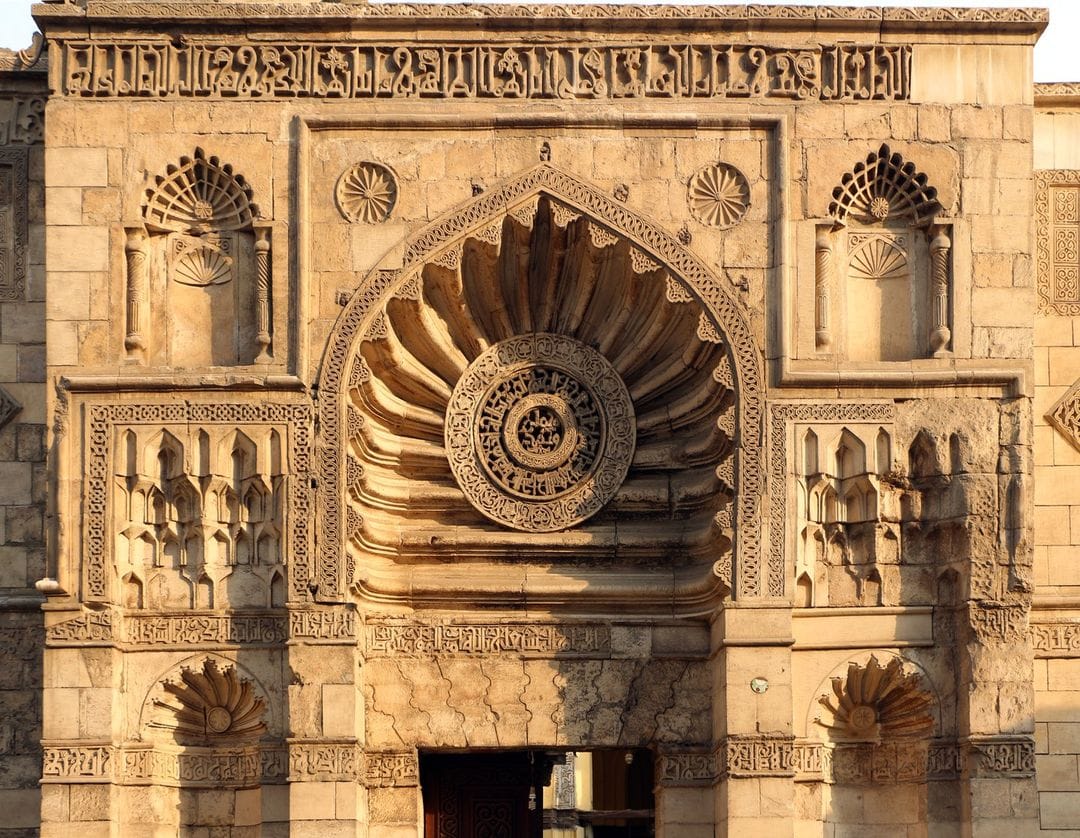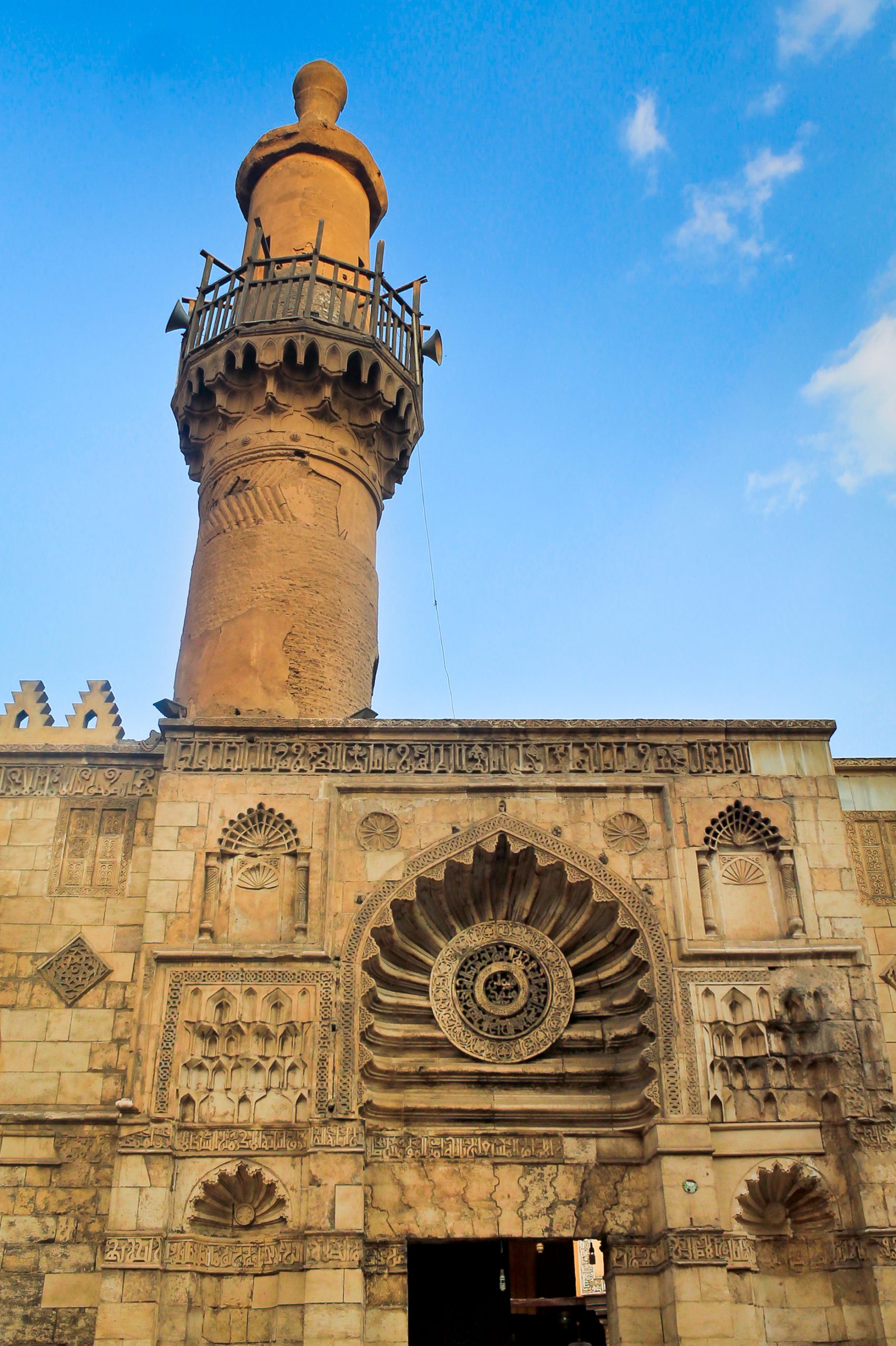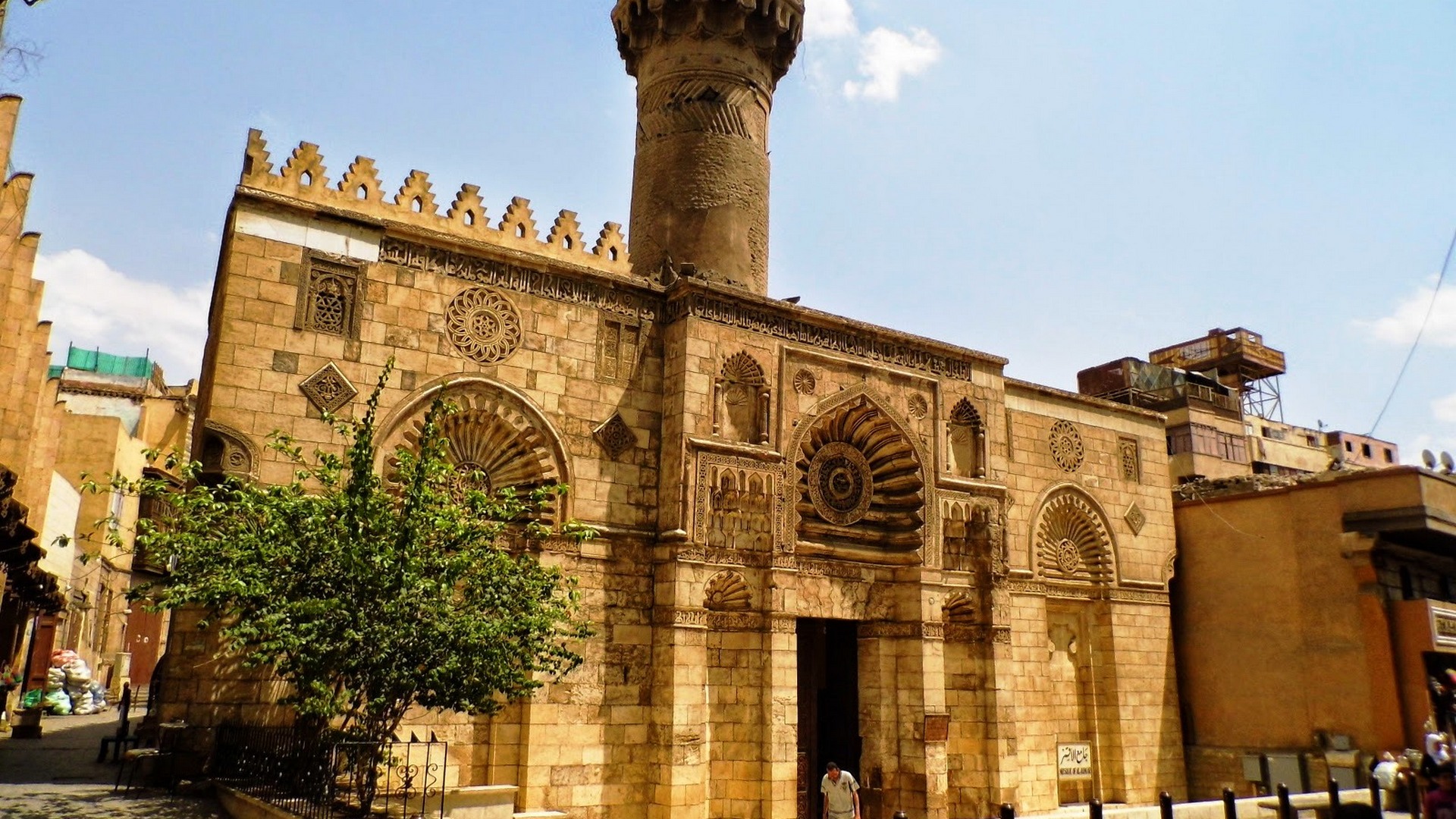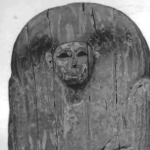The Al-Aqmar Mosque’s Illuminated Exterior, Cairo, Egypt, 12th century, Fatimid Era

The al-Aqmar Mosque, an architectural gem nestled in the heart of Cairo, Egypt, stands as a testament to the ingenuity and artistic prowess of the Fatimid era. Constructed in the 12th century by the esteemed Fatimid vizier al-Ma’mun al-Bata’ihi, this mosque, known in Arabic as al-jami’ al-aqmar, meaning ‘the moonlit mosque’, remains an iconic symbol of Islamic architecture and a cherished landmark in historic Cairo.
Situated along the illustrious al-Mu’izz Street, the former main avenue and ceremonial hub of Cairo, the al-Aqmar Mosque holds a prime location, steeped in history and cultural significance. Its proximity to the former Fatimid caliphal palaces adds an aura of grandeur and importance to its surroundings, further enhancing its allure to visitors and historians alike.

What sets the al-Aqmar Mosque apart from other structures of its time is its remarkable exterior façade, adorned with intricate decorations that captivate the eye and inspire awe. The meticulous craftsmanship displayed in the intricate carvings and ornamental details reflects the skilled hands of the artisans who brought this vision to life. Each element of the façade tells a story, from the geometric patterns symbolizing unity and harmony to the calligraphic inscriptions invoking the divine.

Beyond its visually stunning exterior, the al-Aqmar Mosque boasts an innovative floor plan that distinguishes it as a masterpiece of architectural design. Unlike traditional mosques of the era, which often followed a standard layout, the al-Aqmar Mosque incorporates unique features that enhance both functionality and aesthetic appeal. Its spacious interior, illuminated by the soft glow of natural light filtering through stained glass windows, creates an atmosphere of serenity and contemplation, inviting worshippers to connect with the divine in a tranquil setting.

As a historic monument of Fatimid architecture, the al-Aqmar Mosque holds a special place in the hearts of Egyptians and scholars alike. Its preservation and continued significance serve as a testament to the enduring legacy of the Fatimid dynasty and its contributions to Islamic civilization.
In conclusion, the exterior façade of the al-Aqmar Mosque in Cairo, Egypt, stands as a testament to the rich architectural heritage of the Fatimid era. From its stunning decorations to its innovative floor plan, this mosque continues to captivate the imagination of visitors and scholars alike, offering a glimpse into a bygone era of artistic excellence and spiritual devotion.











